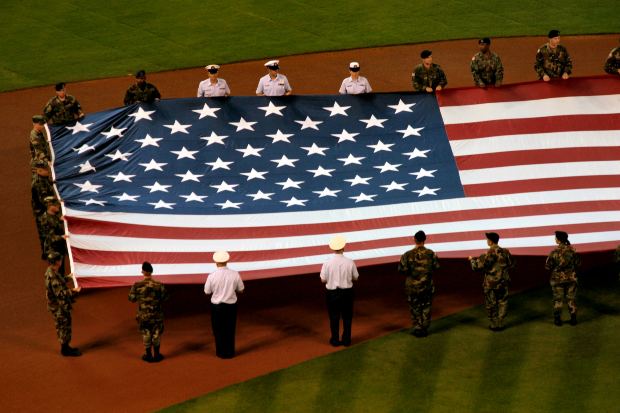 I grew up in Western Pennsylvania. It has a high concentration of Italian Americans. But, after a few years of marriage, my husband and I relocated to Beavercreek, Ohio, which is very near Wright Patterson Air Force Base. The area has an incredibly diverse culture, mainly because of the influx of people from several different backgrounds and nations. While we lived there, I met people whose ancestrage was from Vietnam, China, Korea, Syria, Iran, the Netherlands, Mexico, India, (and yes, Italy too)… all over the world. I even learned to speak a little Dutch while I was there. (Thanks, Iris!)
I grew up in Western Pennsylvania. It has a high concentration of Italian Americans. But, after a few years of marriage, my husband and I relocated to Beavercreek, Ohio, which is very near Wright Patterson Air Force Base. The area has an incredibly diverse culture, mainly because of the influx of people from several different backgrounds and nations. While we lived there, I met people whose ancestrage was from Vietnam, China, Korea, Syria, Iran, the Netherlands, Mexico, India, (and yes, Italy too)… all over the world. I even learned to speak a little Dutch while I was there. (Thanks, Iris!)
I treasure my time there because my children were exposed to such rich and varied cultures. They also learned the importance of military service while we were there. Many of our friends’ families were employed at the base. As much as we admired what we learned from others, that doesn’t mean we don’t still treasure our own history.
My husband and I are not first generation Italian Americans. It was our grandparents’ and our great-grandparents’ generations that settled here. But they brought with them a sense of duty, honor, and love of country that Italians feel for their homeland, and that is the environment in which my husband and I were both raised. Both of our fathers were in the Navy. We have grandfathers, uncles, and great-uncles who served this country proudly.
Strong values are not a tradition that our families have said goodbye to. We and our siblings are raising our children the way we were raised, with the same code of ethics and honor that our families instilled in us. My niece took those lessons to heart. She is currently in the Navy. Given the state of foreign affairs, my first reaction should be abject fear for her safety. But it isn’t. It’s pride. Yes, part of me is frightened for her, but mostly I’m honored that she would put her needs and wants aside to serve her country, to protect me, my family, her family and friends, and the millions of other people she’s never even met. It’s humbling to think that she, and so many like her, would give so selflessly.
Today isn’t about whether you agree with the wars that are being or have been fought. Today is about thinking of and thanking those soldiers who have made a difference in your life, whether you realize it or not. Their sacrifices, and those of the families they’ve left behind, have given us the freedoms we currently enjoy.
To you, past and present military personnel of America, I thank you. Know that I don’t take your sacrifices for granted, and I offer up prayers for you and your families. May God bless you.




 What is the point of writing or ghost writing, or even being a ghost writer or author of a novel, book, memoir or screenplay, if nobody else reads it or them? One reader does an experience make whether it is a ghost writer book, ghost writing screenplay or author memoirs. The point has always been the reader, your readers. You think when you ghost write a book between the many of you, what am I going to be an author or screenwriter about, how am I going to have a ghost writer talk, and how am I making ample money for my business, for my family, for myself – how about simply caring about your readers for a change?
What is the point of writing or ghost writing, or even being a ghost writer or author of a novel, book, memoir or screenplay, if nobody else reads it or them? One reader does an experience make whether it is a ghost writer book, ghost writing screenplay or author memoirs. The point has always been the reader, your readers. You think when you ghost write a book between the many of you, what am I going to be an author or screenwriter about, how am I going to have a ghost writer talk, and how am I making ample money for my business, for my family, for myself – how about simply caring about your readers for a change?